Common Ground couldn’t exist without the support of our amazing donors. Here are just a handful of things that we were able to accomplish because of the generous people who took a moment to give.
[infobox]
Our donors make this happen:
- A Small Plot of Land Seeds a World of Difference (July 2015)
- Learning Doesn’t Take a Vacation (August 2015)
- Building a Community for People and Wildlife (October 2015)
- ED Reflection: Facing the Realities of Race (November 2015)
- Teaching our Cities (December 2015)
- Gallery of recent awesome stuff made possibly by you!
Click a title to jump to the story.[/infobox]
A Small Plot of Land Seeds a World of Difference
By Kate Cebik
Development Assistant
Why would you want to take a farm internship? You know we have supermarkets, right?
Our 2015 summer intern Aarica West laughs as she recounts her father’s reaction to the news that she applied to spend her summer at Common Ground. But comments like these reflect many people’s relationship with their food and its sources. “My parents are from Haiti,” adds Marline Dorcinvil, another intern. “So for them growing food was a chore, something they did so they could eat. They were surprised I wanted to do that when I didn’t have to.”
This past summer we gratefully welcomed four interns to the farm, where they work closely with the land and our crops, attend lectures, and reflect on the impact of food growing in America. They come from varied backgrounds, but share an interest in getting outdoors and making real connections with all they learn.
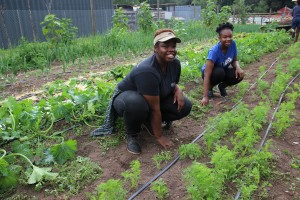
Marline (left) works on the farm with her sister Louann, who came to visit her for a week and learn along side her.
Marline, a student pursing her doctorate in naturopathic medicine at the University of Bridgeport, finds that her work on the farm deepens her understanding of her field. “I have a body, so I understood anatomy. But a lot of what we learn in school about plants and herbs felt disconnected, and I just didn’t completely understand it,” she says. She started volunteering this spring, working with Dishaun Harris on the farm. He identified the plants and herbs she had read about, and it all began to gel.
“Everyone should get their hands dirty once in a while.” Aarica says, despite her dad’s tongue-in-cheek supermarket comment. Aarica is a Yale graduate who just completed her degree in psychology. A friend of hers previously interned at Common Ground, and it was through this friend that Aarica came to realize that growing and sustaining life is an important skill that everyone should have–and that she was ready to gather some of those skills, herself.
Intern Rafay Irfan comes to us after his sophomore year at UCONN, where he is studying Urban Studies and Criminal Justice. An avid foodie and someone who loves to cook, Rafay told me, “I like the idea of knowing the ingredients, to see the food I enjoy from the starting point.” He was also interested in working at a non-profit, and wanted to be sure he could work outside. “I’m not made for a desk job,” he says.
He’s surprised by how few people know how to grow. “People in America don’t seem to give respect to the sources of their food, or even know it,” he says. “I have family in Pakistan, and there they just don’t waste food. As a culture, they are more efficient and aware; they value the food and its sources. I think we could do a lot better.”
Intern Shanti Madison thinks so too. She has always been drawn to science and medicine, but, like Rafay, doesn’t see the appeal of a desk job and now leans toward a future in environmental studies. “I wasn’t satisfied with the legacy of learning in a laboratory room.”
Her passion for food growing started early. “I find an awareness of food for people like me—young people of color—to be very narrow. People have a false idea of what is cheap. A value meal seems like a bargain, but you can spend that same money on some good ingredients to make meals for a week.”
“I was never really taught how to eat well in school,” Shanti adds. She is grateful to her mother for incorporating an understanding of food production from an early age. As a kid, Shanti used to come to Common Ground with her family and see the farm and animals. This past summer, in addition to interning at the farm, she worked with our summer campers, helping the next generation understand healthy eating and the workings of a farm.
Marline is adamant that growing healthy food is possible, even in the city. “People think they need a lot of space and time to grow, but it’s really doable once you get organized.”
She points to Common Ground as a resource for people interested in growing at any level. “[Common Ground’s Farmer] Shannon is a wealth of knowledge. You can volunteer here and learn a ton as you go. You can connect with other growers and get tips, even an excel sheet of when to plant what, and then it becomes much more routine.”
All of our interns are finding great rewards in their time at Common Ground and recognizing ways in which it will help them in their future work. Aarica sees the farm as a learning lab for many of the concepts she studied in school. Working in the field has been a study of resilience for her:
You learn you have to be patient as things grow, endurance over time. As the plant learns to be resilient in many conditions, so does the farmer -Aarica
“Doing weeding and other farm tasks like that are meditative, and it can be very grounding,” says Marline. She will take both her new knowledge and this practice back to her classmates, and into her future practice in naturopathic medicine.
At the end of the summer, Rafay planned to use his experience to better understand the connection between green spaces, community gardening, and urban planning. Shanti planned to continue her work with Common Ground as she takes classes towards her environmental studies major. Aarica hopee to build community through photography, eventually creating a community darkroom for inner-city kids so they can discover, express, and take pride in the beauty of their neighborhoods.
I am thankful for the lessons our interns are learning, and for those they are teaching us as they go.
Where are they now? (Update from March 2016!)
Aarica: After the internship, Aarica’s main impression was one of awe: “The organization necessary to fully utilize every aspect of the farm is unbelievable.” She writes about the personal effect it has had on her: “I use this experience when thinking about food . . . I am more cognizant of what I consume.” Today Aarica is a Digital Media Instructor for CONNCAT, Connecticut Center for Arts and Technology. Focusing on Photography, she teaches 3rd through 6th graders the basics of photography at Lincoln Bassett Elementary school. In addition, they are building a school garden, so Aarica will reach back to her work with Common Ground to help the growth of the garden and program.
Rafay: “This internship helped me to understand that its OK to try new stuff even if you don’t have a lot of background knowledge,” wrote Rafay. Rafay, who still has plans to become a police officer. Rafay recalls that his internship caused him to view agriculture as providing “a resource for youth who need some passion and direction in their lives.” Rafay remains in school, currently “drowning in homework and exams in the midst of the semester.” He was also recently Event Coordinator/Secretary for his fraternity and is working hard to add these additional responsibilities into his packed schedule. He reports that “Common Ground gave me a good understanding of working for a non profit organization and becoming agriculturally aware of all the problems and issues that we face. CG gave me an understanding of possible career options.” He also gives a shout out to farmer Shannon for her strict sense of timing, which has greatly improved his time management skills.
Marline: Marline felt the work she did here was directly applicable lessons to her own life and future livelihood. “It’s manageable to have a small farm,” wrote Marline, “someone could easily make a small farm or garden part of their life.” Today Marline is in her second year of medical school. She tells us “a lot of what I learned on the farm is used in my training to be a Naturopath.We are trained to look at the whole person and see the symbiotic relationship between everything. Working on the farm definitely showed me that.” She is also moving forward on her personal farm plan–she is about to start her own garden with two beds.
Shanti: After the internship, Shanti jumped immediately into her new role as a teacher for Common Ground’s Summer camp. She credits her farm experience for making her a stronger educator: “I was able to better explain nature to children and counselors alike.” In the fall she helped with the garden program at Elm City Montessori. In just a few weeks she will return as an environmental educator for another season of Kids Unplugged at Common Ground, as well as learning at Massaro Farms in Woodbridge. She tells us, “The farm internship program opened my eyes to the joy that is agriculture; now I’m encouraged to seek out new farms and learn new agricultural techniques and practices. The internship made me a part of a dynamic team with wonderful charisma and leadership; they inspire me to further pursue my passion.”
Learning Doesn’t Take a Vacation
By Kate Cebik, Development Assistant
Common Ground’s school building still buzzes with learning this summer, as hundreds of campers gear up for daily adventures. But don’t think that our high school students suspend their learning (and leading) over the warmest months! Our students filled the summer with many exciting projects: 56 of our students took part in paid work experiences at Common Ground or with our partner organizations, and 100 were involved in our summer school program. Here are some of their stories:
Water Boot Camp
Ten CG students took part in the fourth annual Water Boot Camp, a week-long program designed to introduce high school students to environmentally-related careers at public water utilities. Students waded into the Mill River, collecting water samples and specimens like stone flies and water pennies. They also spent time with employees and even the president of the the South Central Connecticut Regional Water Authority, learning about future careers in this field.
Students: Keelin Mathews, Tyrone Walker , Ben Weingart, Jalyn Johnson, Aaliyah Lopez, Malik Joyner, Eugenio Garcia, Edwin Calle-Calderon, Santino Kravitz, Beyonce Harris.
All photos above courtesy of Markeshia Ricks/New Haven Independent
Artspace
Artist Mekaylah Stricklin & Performer Myles Davis participated in Artspace’s 15th annual Summer Apprenticeship Program (SAP), taking on the hard-hitting theme of “Arresting Patters: Race and the Criminal Justice System” at Artspace. For three weeks in June and July, Titus Kaphar, Collective Consciousness Theater’s Dexter Singleton, hip-hop poet Aaron Jafferis and several SAP facilitators worked intensely with students, creating works that speak to their experience with this emotionally charged topic.
Above, student Myles Davis (L) performs a rap in front of artwork by Mekaylah Stricklin. Read more about this project and see the video at the New Haven Independent.
Common Ground Summer Camp
Common Ground students and 2015 graduates spent their summer teaching the next generation of environmental leaders at Common Ground Summer Camp! It has been an exciting and fun summer of hiking, exploring, cooking, discovering, and of course making plenty of friends and memories.
Students: Adrian Gonzalez, Ashley Holmes-Clark, Beverly Edge, Fatou Cisse, Idonia Thomas, Julia Farquharson, Keilly Solano, Lisa Gonzalez, Miranda Holland, Omar Mercado, Sabrina Torres, Thaddeus Karjanis, Yasmine Scipio
All Aboard The Roseway
A group of students and staff set sail aboard the Schooner Roseway for four days of ocean learning, exploration and adventure. They spotted squid and humpback whales, gained a lot of knowledge about boating and life at sea, and had an unforgettable experience.
Read more about this experience in this post by Joan Foran!
Students: Fatou Cisse, Fiona Kelly, Taylor Pauls, Karissa Bowden, Ihsan Abdussabu, Grace Knudsen, Aridyan Perez, Hilda Flecha, Paula Pabon, Jesus Reyes, Santino Kravitz, Mariela Sanchez and staff Mary Hayden, Joan Foran, and Keith Johnson
Photos above courtesy of the World Ocean School/Schooler Roseway and CG teacher Joan Foran.
Summer School
Summer school sets students up for a successful year by allowing them to brush up on skills that proved difficult for them in the past. Summer school also provides us with a chance to get to know some of our incoming freshman and vice versa. Math courses are led by teacher Mel Morales and TA Sekou Koivogui. English courses are led by teacher Monique Fraiser and TAs Win Vitkowsky and Kerry Ellington. Meredith Odinak coordinates the program. Most courses run for 4 weeks, though they range from 1-4 weeks in length.
This summer, students took advantages of the following programs:
Math:
- Pre-Algebera Prep
- Algerbra 1 Prep
- Geometry Prep
- Algebra 2 Prep
- Pre-Calc Prep
English:
- Intro to Literature Prep
- English 9 Prep
- English 10 Prep
- English 11 Prep
LEAF Internships
Ted Brooks, Elmer Galvez, Loc Nguyen, Carrie Beech, Brianna Mattingly, and Crystal Tirado completed an internship with LEAF (Leaders in Environmental Action for the Future), a competitive national program of the Nature Conservancy. This 4-week, residential program challenges students to take on environmental stewardship work while simultaneously gaining life skills like budgeting, teamwork, and group management. Students embarked on work projects in Connecticut and Virginia. Read more on WNPR and at the Weston Daily Voice.
All Leaf Intnership photos credited © Cynthia Fowx/TNC [The Nature Conservancy]
West River Stewards
Four of our Green Jobs Corps students surveyed Wintergreen Brook from source to headwaters, working under the guidance of Common Ground teacher Dave Edgeworth. The data they collect will inform a new management plan for the West River Watershed, an effort spearheaded by the Connecticut Fund for the Environment (CFE). Common Ground students join other citizen scientists and CFE staff who are out surveying other tributaries of the West River.
Students: Lovell Davis, Ken Velez, Brian Pervis, Tyreek Langley, with a volunteer drop in visit by graduates Jesus Reyes and Grace Knudsen. Look for more info on our other Green Jobs Corps summer placements in an upcoming newsletter.
Common Ground values continuous, life-long learning and growth — and our students certainly live that value. We respect all the great work they did this summer, and are looking forward to the warming temperatures leading to another exciting summer of learning.
Building a Community for People and Wildlife
Jill Keating-Herbst
Program Manager, CT School Garden Resource Center
It is late on a Wednesday afternoon in September. At Edgewood School in New Haven a small group of teachers and parents, along with the principal and assistant principal are gathered in a circle, huddled into the desks of second graders. They are the Schoolyard Habitat Leadership team and they are meeting for the first time this school year. Their agenda is long.

Teams from Common Ground and the local community work on the Columbus Family Academy’s schoolyard habitat.
Who watered all summer? Was it enough? The arbor broke- how can we fix it? The seating logs are rolling downhill, can they be secured? How will we get more classes outside? What grants should we apply for?
The list of challenges and questions goes on and on, but one by one each concern is addressed. They set a date for a work day, designate a sub-committee to write the grant, make a plan to present at the next staff meeting. And, they share new ideas and some success stories from the first few weeks of school: let’s build a bench around that old tree, did you see those kids building fairy houses on the trail?
Leadership teams at East Rock, Worthington-Hooker, Barnard, and Columbus—the four other New Haven Schools who have taken part in the Schoolyard Habitat Program—face similar obstacles as they returned to school last month – dry weedy habitats, disrupted outdoor classrooms, staff turnover. This work is hard.
Why do we do it?
Last year, over 700 students participated in lessons outside in their schoolyard habitat. Teachers in the program reported a 57% increase in how frequently they take their students outside. As a result of these lessons, over 65% of students demonstrated increased content knowledge and nearly 50% demonstrated a change in attitude toward the environment.
“The creation of outdoor educational programming is a hallmark of our school and very important… the outdoors is vital to their development.”
“Many staff are taking advantage of the outdoor classroom and its many educational opportunities… they use the curriculum, but sometime they go out in other capacities.”
“I am excited to see our involvement in Schoolyard Habitat grow and thrive.”
-New Haven teachers who have participated in the program
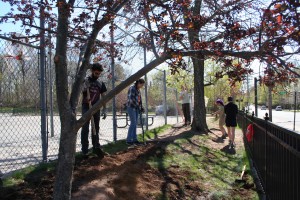
Common Ground Green Jobs Corps students lend a hand to community volunteers as they install the schoolyard habitat at Edgewood School.
Teachers report feeling more comfortable taking their classes outdoors and have used the habitat to do investigations on insects, observation of the plant lifecycle and studies on bird songs. The spaces are used for art projects, storytelling and math. Students create field guides and they quietly monitor migrating birds from behind strategically placed bird blinds.
And, the habitats bring people together. Hundreds of volunteers have planted native plants, spread mulch and constructed outdoor classrooms in schoolyard habitats since the program began in New Haven in 2013.
Representatives from Common Ground, Audubon CT, US Fish and Wildlife Service and the Peabody Museum support schools in the creation of their habitat as well as in curriculum integration and long-term management. Designing the outdoor classroom, planting all those native plants, teaching the first few lessons outside; all challenging first steps for each school. But the real work comes in sustaining the space, in truly embracing outdoor learning as part of the school culture so that each child can experience nature in their own school yard year after year.
Expanding the community
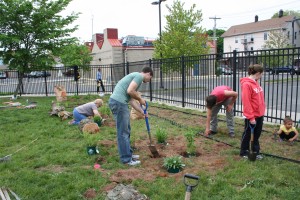 On Wednesday, October 14th, over 50 people will come together at Audubon Greenwich for the first Schoolyard Habitat Leadership Summit. Educators, school administrators, parents, community volunteers, naturalists and others will come together for a day of collaboration. We will share success stories and tackle common challenges. There will be panel discussions on fund raising and community engagement. David Sobel, a renowned education writer who focuses on outdoor play and place-based education, will give the keynote address and lead an engaging curriculum workshop.
On Wednesday, October 14th, over 50 people will come together at Audubon Greenwich for the first Schoolyard Habitat Leadership Summit. Educators, school administrators, parents, community volunteers, naturalists and others will come together for a day of collaboration. We will share success stories and tackle common challenges. There will be panel discussions on fund raising and community engagement. David Sobel, a renowned education writer who focuses on outdoor play and place-based education, will give the keynote address and lead an engaging curriculum workshop.
This summit is just one step in building a larger community around schoolyard habitats, bringing people together who share a common goal: conserving habitat for wildlife and facilitating the use of that space as an educational resource for school children.
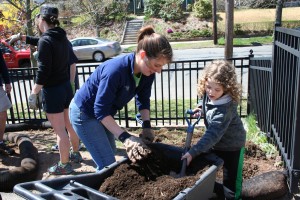 Next month, two additional New Haven public schools will join the Schoolyard Habitat Program and start the process of creating an outdoor learning space for students. The teams at each of these new schools will face the same challenges but they will also get the same reward: children learning outside in their own schoolyard, engaging with wildlife and becoming the next generation of environmental stewards in New Haven.
Next month, two additional New Haven public schools will join the Schoolyard Habitat Program and start the process of creating an outdoor learning space for students. The teams at each of these new schools will face the same challenges but they will also get the same reward: children learning outside in their own schoolyard, engaging with wildlife and becoming the next generation of environmental stewards in New Haven.
ED Reflections: Facing The Realities of Race: A Story About Race and Racism
by Melissa Spear
Executive Director
When I was in 6th grade my school in Richmond, CA was “integrated” by bussing black children in from surrounding communities. This was a painful and emotional experience for all concerned. The children being bused in were clearly not happy to be at our school, while those of us from the school felt confused and threatened by the intensity of emotion that seemed to be directed at us by our new classmates.
I remember standing out in the playground and watching the new students assembled on the front steps of the auditorium loudly chanting with fists raised “Say it loud, I’m black and I’m proud!” At 11 years old I sensed they were angry, and I could not help feeling that this anger was somehow directed at me–was somehow an accusation that I personally had some responsibility for whatever it was they were angry about. I did not understand how that could be true. “After all” I naively thought at the time, “I have nothing against them, I am not racist, I want us to be friends!”
This experience left an indelible impression on me. I knew intuitively that there was something deeply wrong, some injustice that lay at the root of what was happening, but I had neither the information nor the tools I would have needed at that point in my life to figure out what was really going on.
I have come a long way in my understanding of this episode in the intervening decades. Much of this understanding has come as a result of the work we are engaged in at Common Ground to develop the knowledge, self-awareness, skills and systems necessary to align our work with one of our core values, to cultivate “a diverse human community that thrives within an environment of trust, equity, dignity, and interconnectedness.”
We began this work three years ago, and recently entered into a partnership with CEIO – the acronym stands for Co-creating Effective and Inclusive Organizations – that will provide the support and facilitation skills necessary to accomplish this aspirational goal.
I have learned many important lessons over the three years that I have been engaged in this work at Common Ground that are effectively transforming the way I walk through the world. For one, I have gained a much more rigorous and deep understanding of the ways key societal institutions and systems have been designed to favor white people, and disadvantage people of color, and how this has led to a significant wealth gap, disproportionate incarceration rates, and an unacceptable achievement gap in education among other inequities. This awareness has helped me to empathize with, and share in the anger that has been expressed in response to the injustices perpetrated on communities of color in Ferguson and elsewhere by biased systems, institutions and yes, people.
I have also come to understand how important it is to be able to differentiate between expressions of anger about institutional racism, and personal accusations of racism. The children who were chanting “I’m black and I’m proud” on those school steps 40 odd years ago were not personally accusing me of being racist. Their outcry was not about me. It was about a system and a society that was treating them unfairly and unjustly based on the color of their skin.
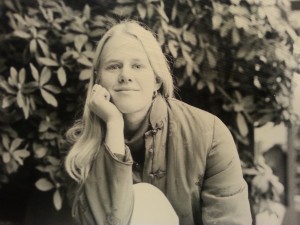
The author and Common Ground’s Executive Director, a little while after she first faced school bussing.
By reacting to their chant personally (insisting “I am not a racist”) I became defensive and thereby resistant to questioning what their passionate outburst might really be about. As a result an important learning and growing opportunity was missed not only by me, but by everyone – staff and students alike – at my school!
Perhaps most importantly, I have learned that to really do the work of “cultivating a diverse human community that thrives within an environment of trust, equity, dignity, and interconnectedness” I have to embrace complexity and take risks.
It is scary for me, a white person, to engage in a frank, sincere, real conversation about race and racism – especially with a black person.
Will I say something wrong? Will I use my power (privilege) inappropriately to subvert the agenda? Do I have anything of value to contribute? Are my reactions coming out of some deep desire to protect myself, my position, the advantages I gain from the current system? What if I disagree? Do I have any idea what I am talking about? Will my thoughts and opinions be disregarded and what will I, should I do if they are?
The conversations we are having at Common Ground have been hard, but they are getting easier with time. In part it is because the relationships are getting deeper. In part it is because we are acquiring more skill. Regardless, I know I cannot expect to ever be totally comfortable in this work simply because it requires acknowledging and confronting painful realities.
When I think back to how ill-equipped all of us at Washington Elementary School were to deal with the difficult circumstances that brought us together, I realize how important it is for Common Ground to do a better job preparing both our staff and students to directly address similar challenges.
Being honest about the bias built into our institutions, and the existence of systemic racism is often uncomfortable, but it is necessary if we hope to live up to our values not just as an organization, but as a country.
I recently had the privilege of hearing Charles Blow deliver a powerful and inspiration speech about race in America. In his speech Mr. Blow laid out in clear and compelling terms how deep-rooted bias and institutionalized racism has not only disenfranchised the black community, but also kept us from truly realizing our core values as Americans – that all men are created equal, and that here, in the United States of America, there is liberty and justice for all. We are diminished as a society by norms, attitudes, behaviors, systems and institutions that perpetuate racism, or any form of “-ism” for that matter.
The work Common Ground is engaged in to examine our organizational norms, assumptions, attitudes and behaviors is intended to help us live up to our values – to cultivate “a diverse human community that thrives within an environment of trust, equity, dignity, and interconnectedness.” Just as important, the work is about making Common Ground even more accessible, relevant and effective at delivering mission impact to all communities.
But perhaps most significant, at Common Ground we believe that unrecognized, unaddressed bias is deeply damaging to our community, our society and even our country as a whole. For this reason we want to effectively and proactively address injustice and inequity wherever it manifests, and make sure we are a part of the solution, not a part of the problem.
Teaching Our Cities
by Joel Tolman, Director of Impact & Engagement
I was a brand new teacher when I came to Common Ground in 2003. The first class I taught — together with Liz Cox, now our School Director — was a course about New Haven’s neighborhoods. It sounds a little ludicrous: a first year teacher, new to New Haven, teaching a class about New Haven to students who had called this city home for most or all of their lives.
It felt a little ludicrous, too. My students and Ms. Cox taught me a huge amount.
But when I look back on what actually worked in that first, wobbly class, a few things stand out: A student-led tour of Dixwell Plaza. The web site that our students built, sharing stories about their neighborhoods. Walking back and forth to Katherine Brennan Elementary School once a week, where our students — many of them struggling readers themselves — taught reading strategies and read aloud to 2nd graders.
I was reminded of this class in November, when teachers and school leaders from cities across the country — Los Angeles and Boston, Milwaukee and New York, Hartford and Tacoma, New Haven and Minneapolis — converged on Common Ground. Over the three days we spend together, it became clear that these educators shared my experience: That many of their best, most meaningful, most lasting experiences as educators were rooted in the cities they and their students called home.
Check out this video to learn more about this gathering of educators:
Put “urban” in front of the word “education,” and something strange seems to happen. Sometimes, the word “urban” gets used when people aren’t comfortable talking about schools that serve Black and Latino students, or that predominantly teach students living in poverty. Put this together with other stereotypes of urban public schools — achievement gaps, politicized and dysfunctional bureaucracies, high dropout rates, a mix of brand-new underprepared teachers and worn-out veterans — and it’s easy to get stuck in a toxic spiral that seems to relegate students of color and low income students to schools that aren’t supporting their success.
But what if we could turn this dynamic on its head? What if we recognized that cities are dense with all the things that make learning possible — people with talents and passions to share, diversity of perspectives and experiences, problems to be solved and questions to be asked, organizations ready to provide the supports and opportunities our students need? What if urban public schools embraced their cities, rooted themselves in their urban environments, and turned those places into an extension of their classrooms?
Of course, schools engage their cities as classrooms, teachers, and textbooks all the time — in New Haven public schools, and in schools all over the country. This is not a new idea. The question is: Can educators, schools, and community members that are teaching their cities work together, support one another, build each other’s capacity? Can we grow something bigger, of which more students and teachers are a part?
That’s the idea behind Teaching Our Cities, a new project at Common Ground — and the reason all those educators gathered on our campus last month. We called it a “learning exchange,” because all our schools have a lot to learn, as well as a lot to share. During this learning exchange, educators sat in on classes — not to see the perfect lesson, but to provide critical and supportive feedback. We worked through common problems: from the realities of using public buses to transport students, to the dynamics of predominately white, suburban faculties teaching predominantly urban students of color. We put course plans in progress on the table, and welcomed questions and ideas from peers from other schools.
Because schools don’t change in a day, or even three, we’ll continue to bring our schools together. And we’ll keep welcoming fellow educators into the mix. If you’re interested in joining this community of educators, you can sign up for one of our next to Teaching Our Cities Learning Exchanges:
- Authentic Assessment – January 20th. Join in Common Ground’s end of semester Presentations of Learning. Provide feedback to our seniors as they finalize their leadership portfolios. Bring a project you want to develop, and get feedback from peer educators from Common Ground and schools across the region. Learn more and register.
- City Math – February 3rd. Explore how to build culturally relevant, challenging, authentic math learning experiences for urban public high school students – by making the city our math classroom, textbook, and co-teacher. Observe and provide feedback on Common Ground courses that use our urban farm as a math resource. Share resources, problems of practice, and experiences with math teachers who are integrating urban environmental challenges, social justice issues, and place-based case studies into math courses. Learn more and register.
Thanks to support from the Dalio Foundation, the Environmental Protection Agency, and the Gould Foundation, Common Ground will be able to offer these learning exchanges and other opportunities to work together free of charge. We always welcome visitors who want to learn about Common Ground — and provide us feedback that will help us continue to grow. Email me at jtolman@commongroundct.org if you are interested in coming for a visit.

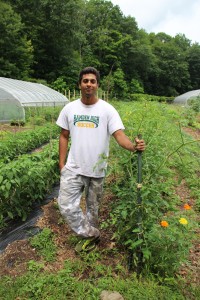
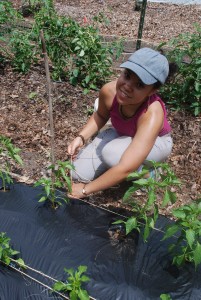
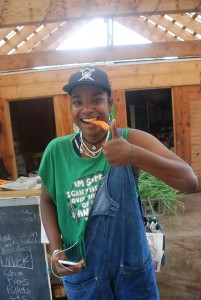
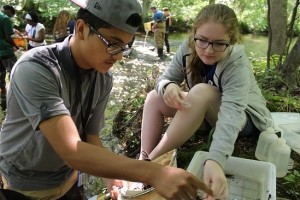
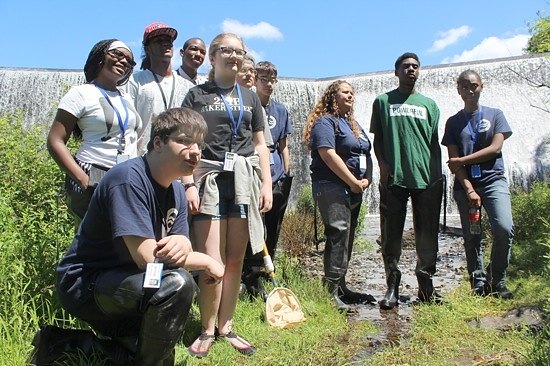
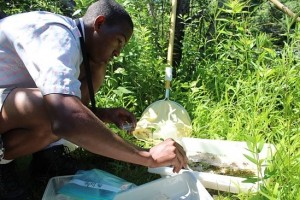
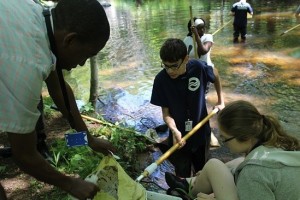
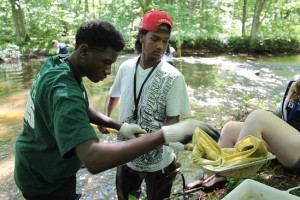
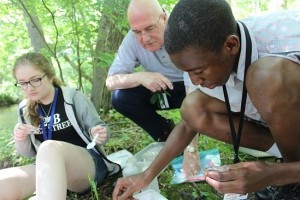
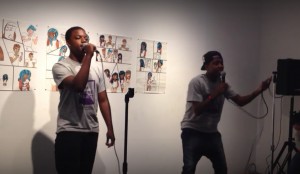
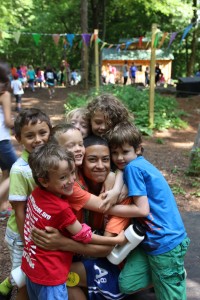
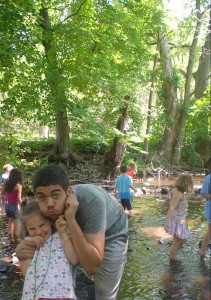
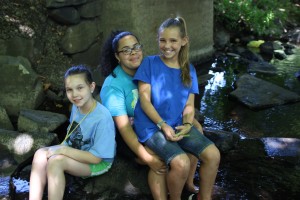
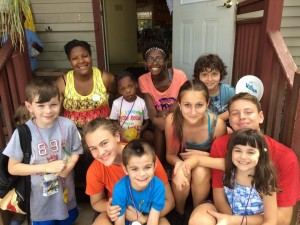
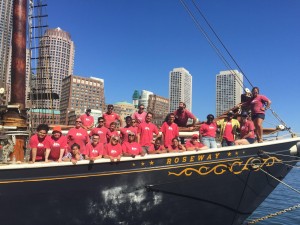
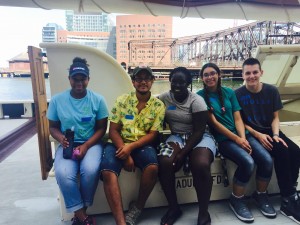
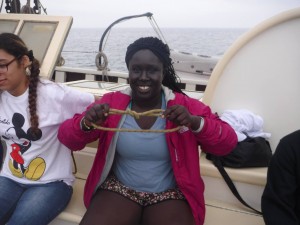
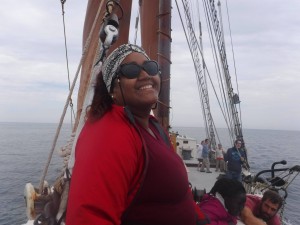
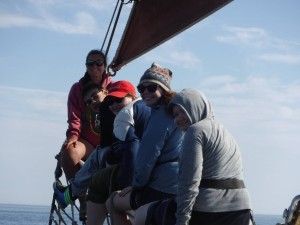
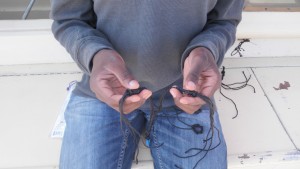

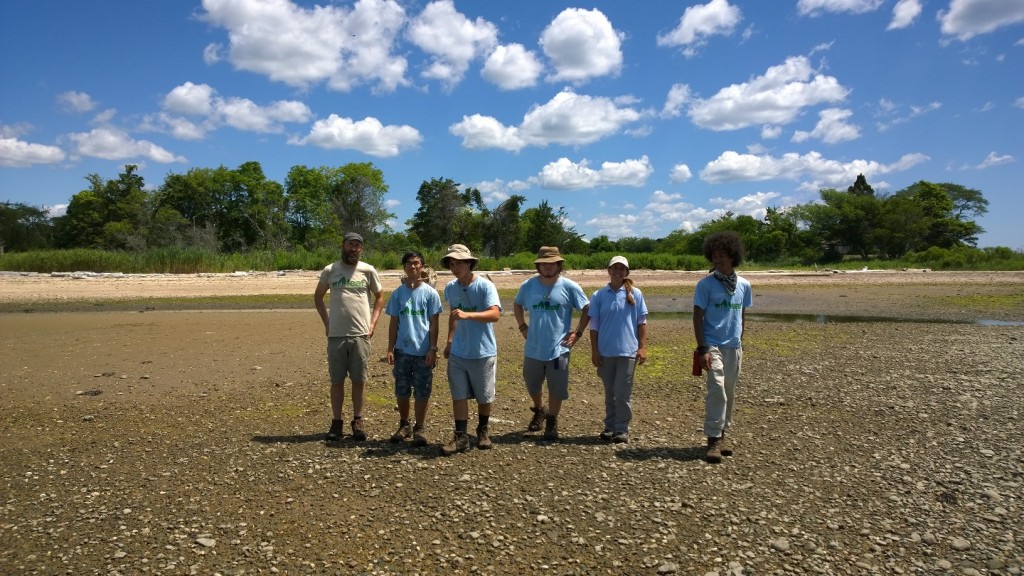
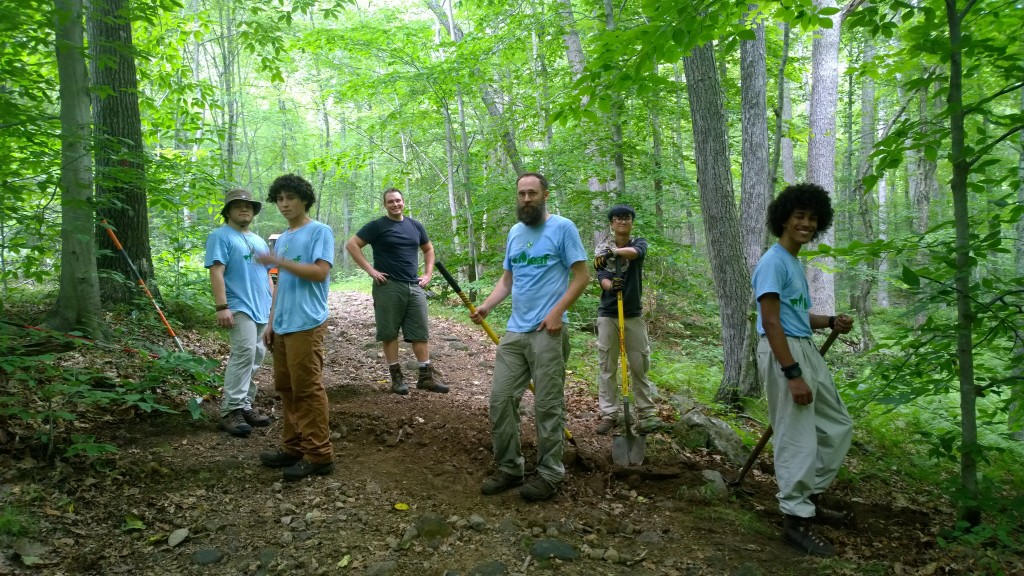
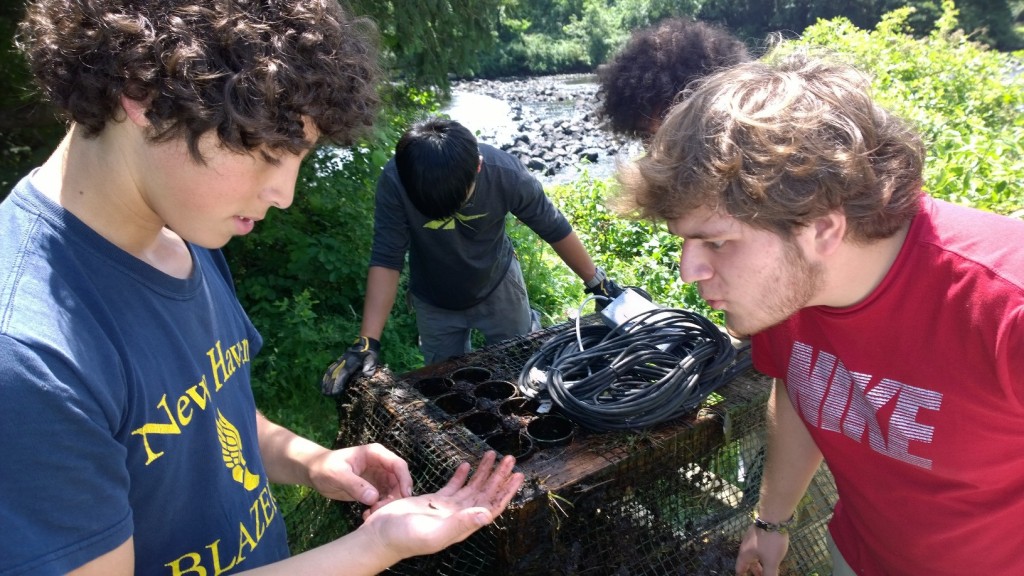
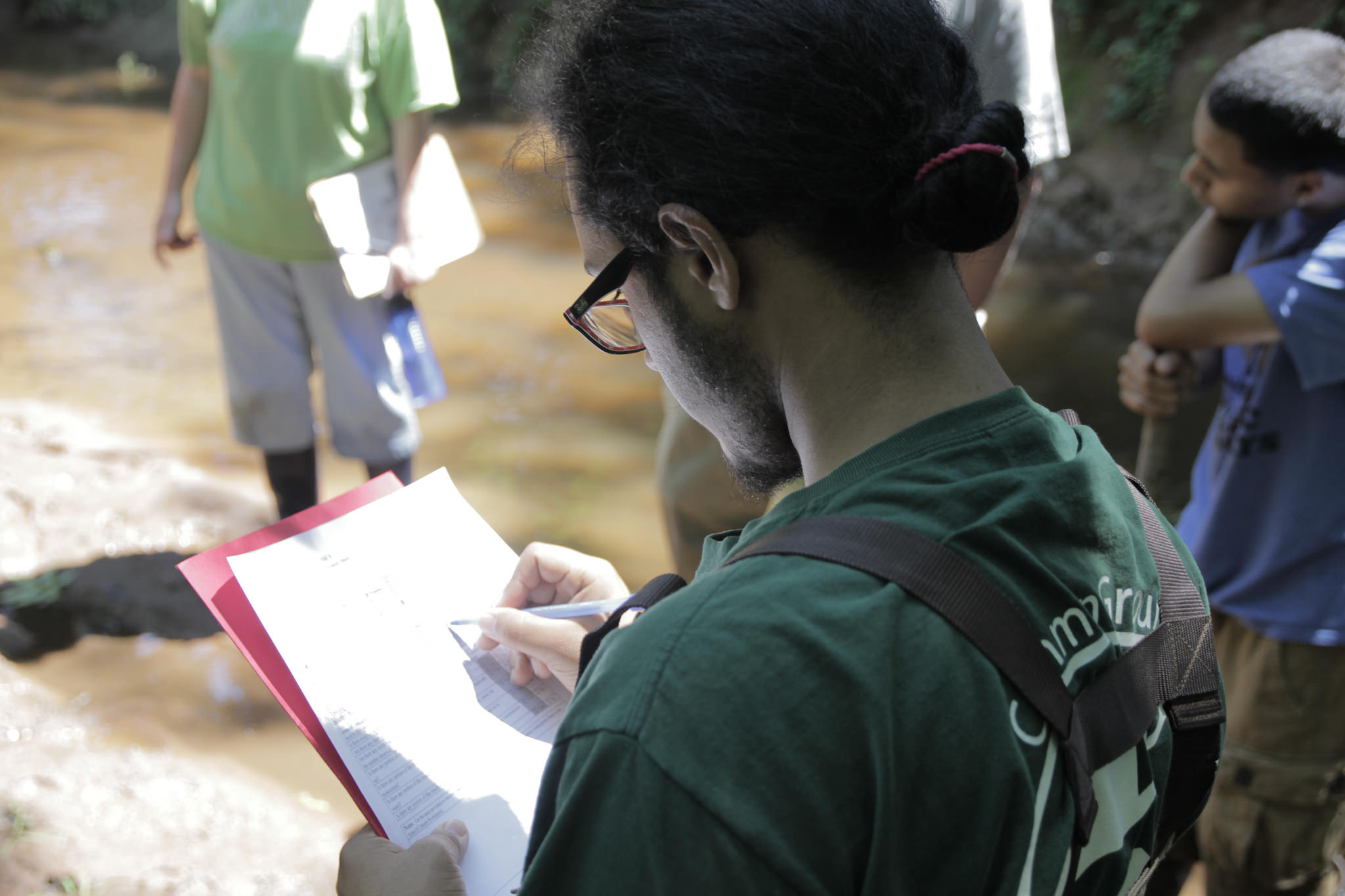
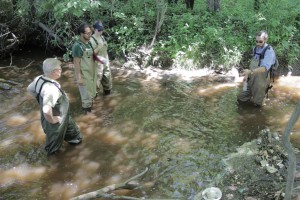
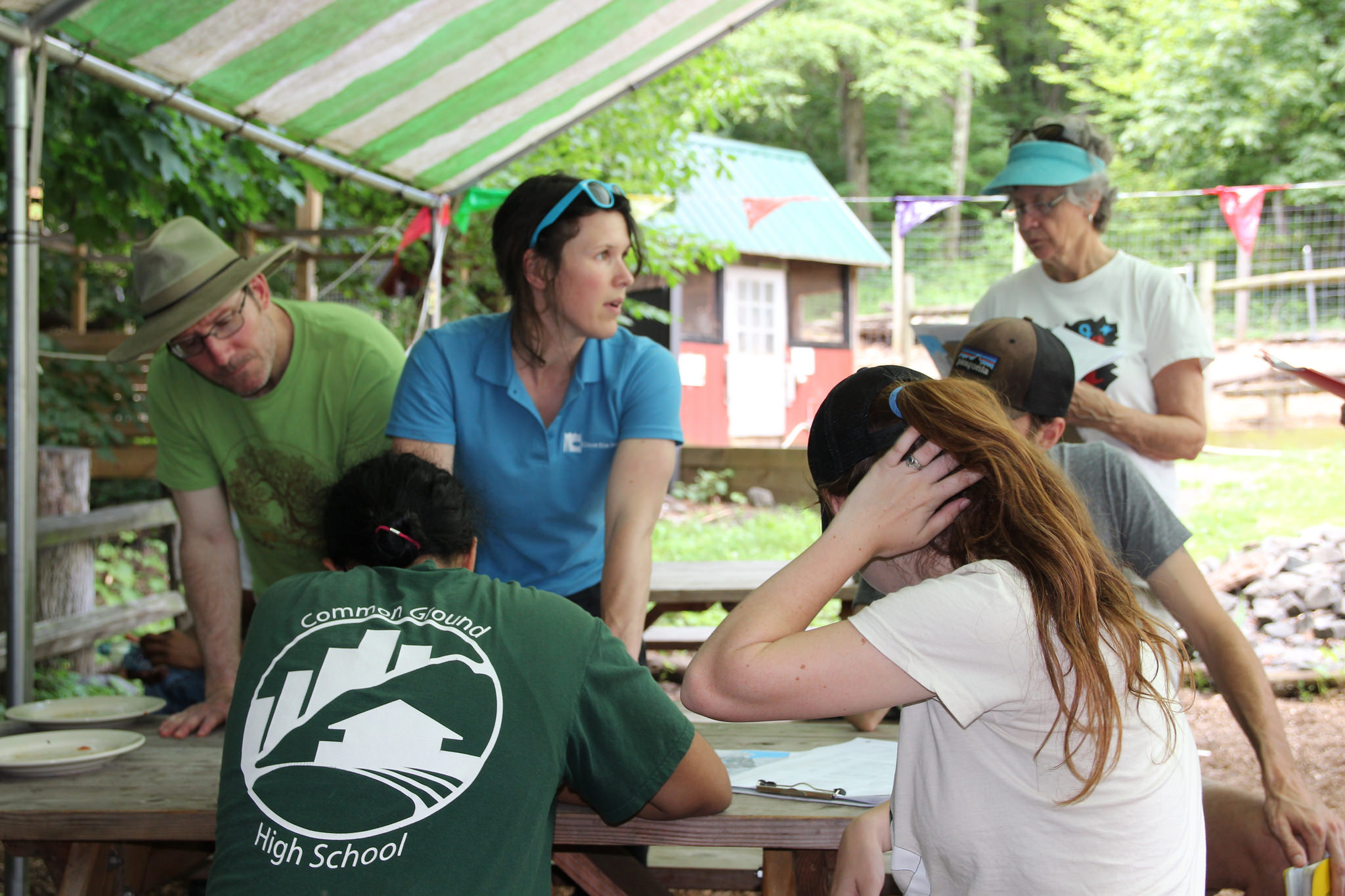
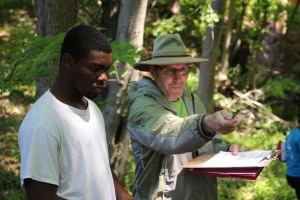
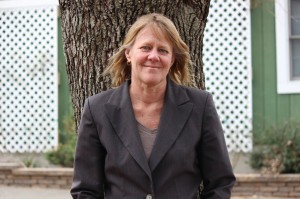
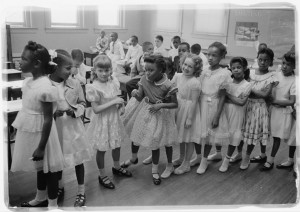
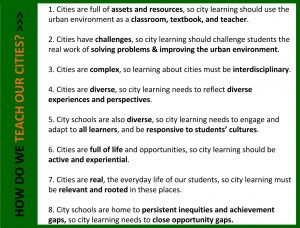
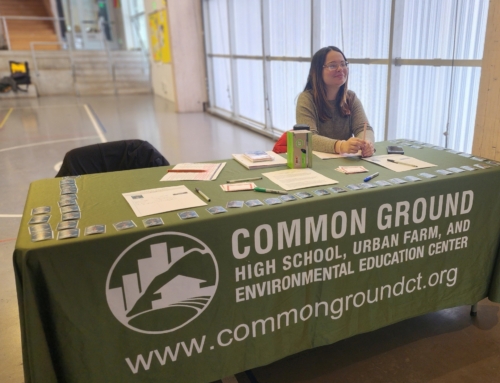
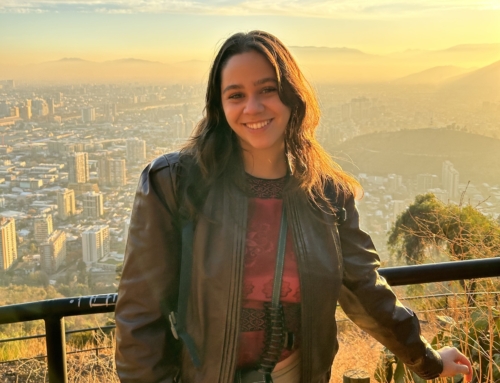
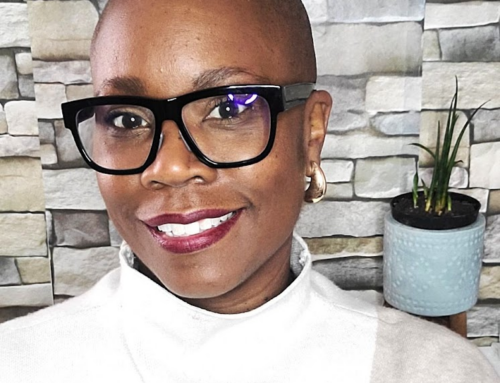
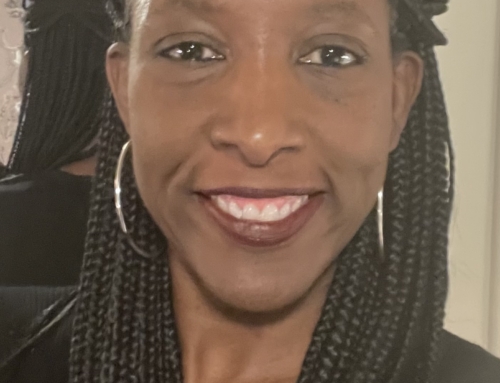
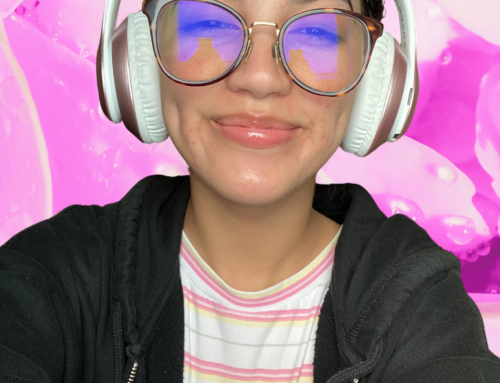
Leave A Comment